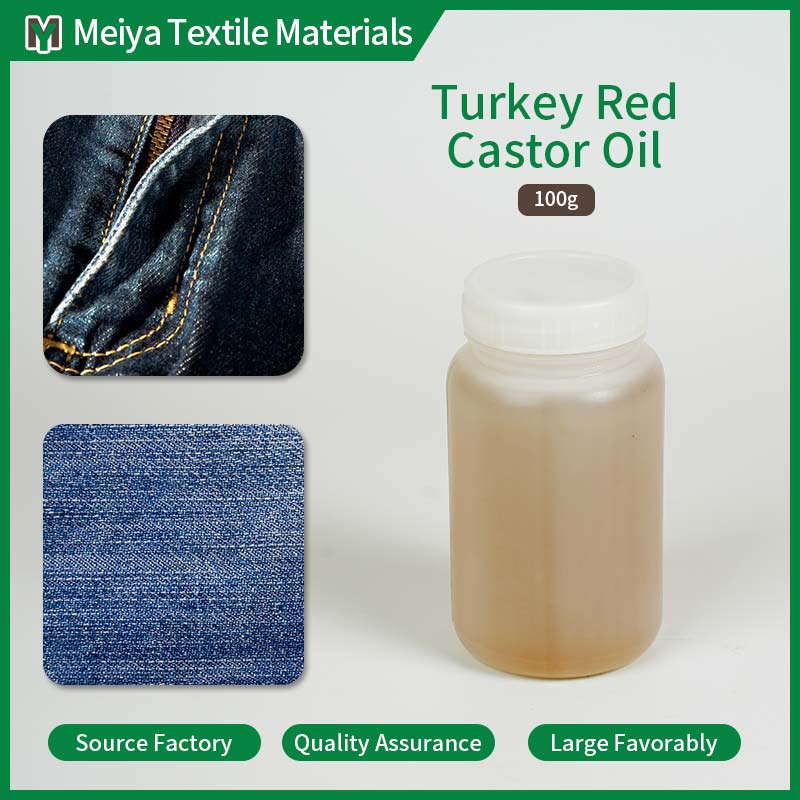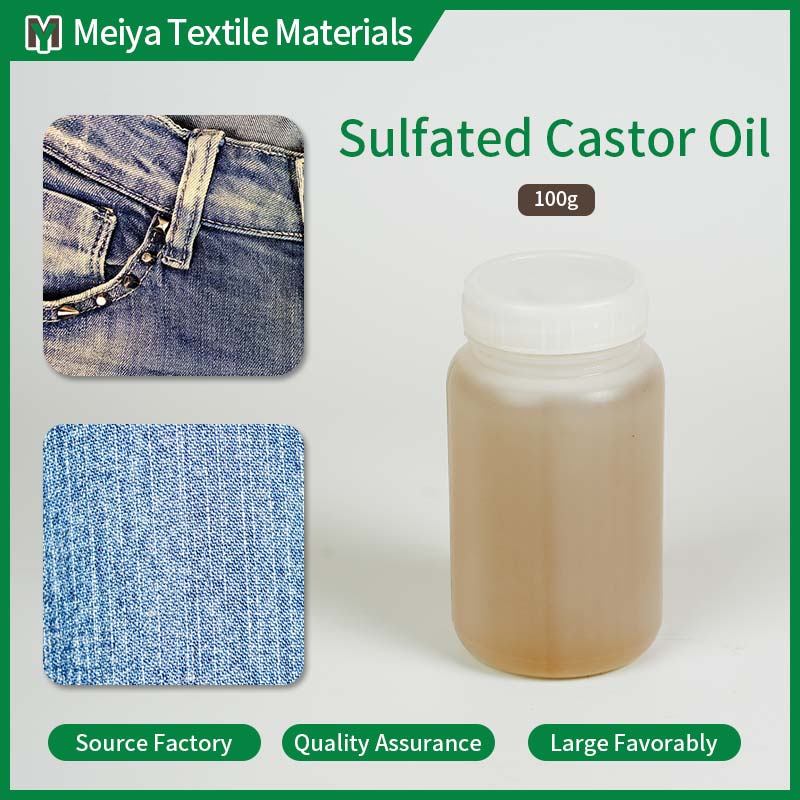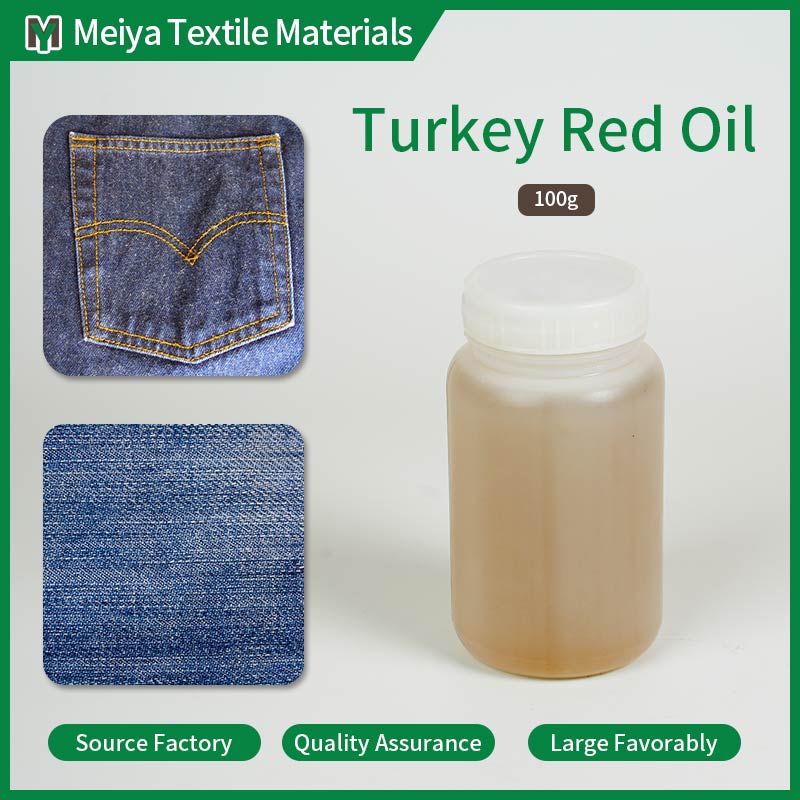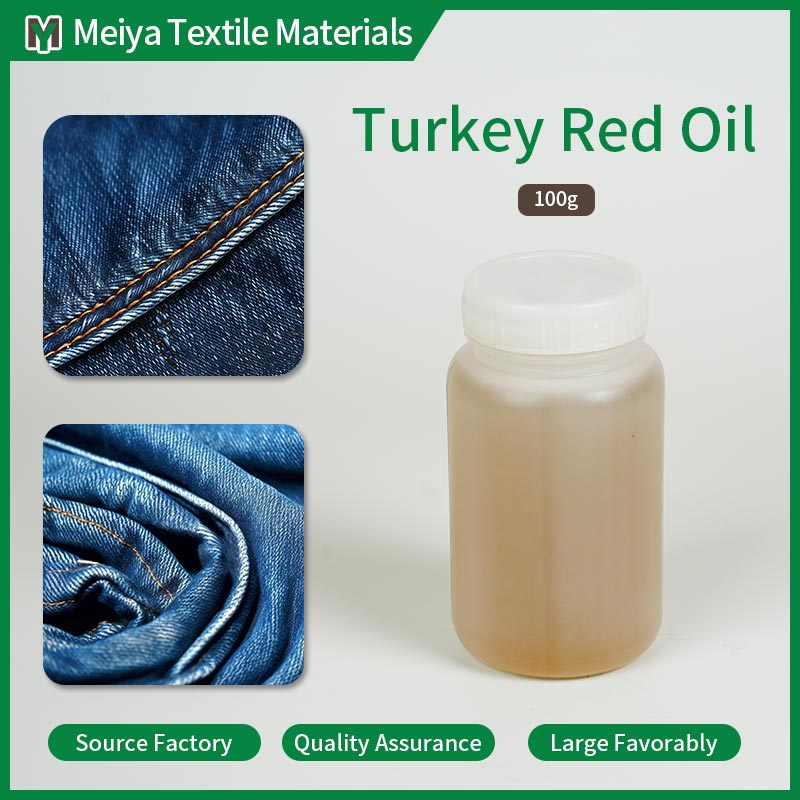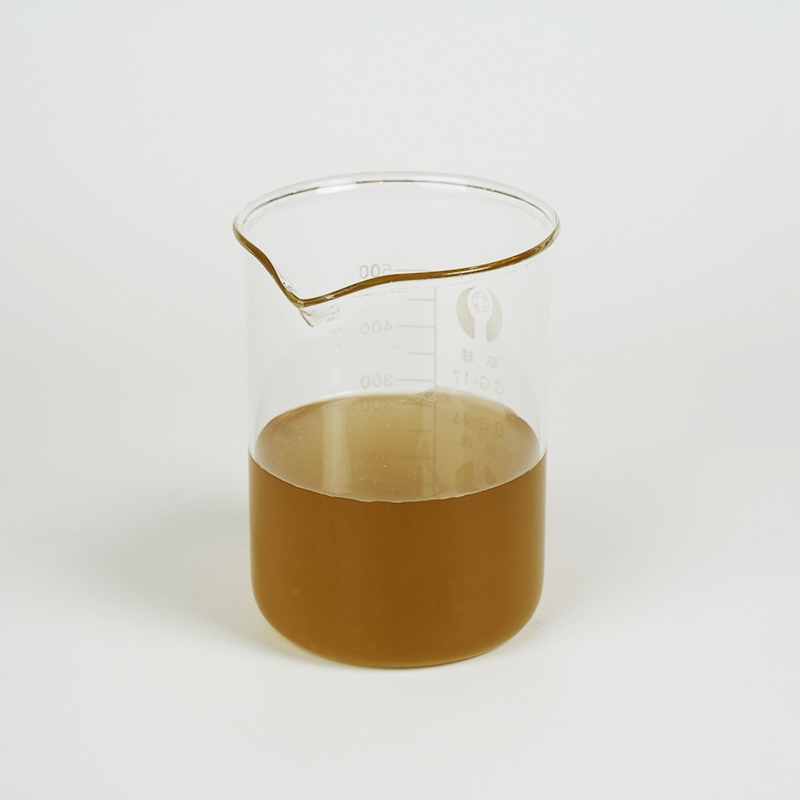Manufacturer Supply Turkey Red Oil
Please click the button below to contact us.
Introduction:The turkey red oil, also known as sulfated castor oil or sulphonated castor oil, is a unique and versatile product with various applications. It is produced by sulfating castor oil, resulting in a water-soluble, amber-colored liquid.
Product Description
This is the Turkey Red Oil, which we are introducing to you as Jiangmen Meiya Textile Materials Co., Ltd. Its versatility makes it a very important ingredient used in the textile industry. Our company, being a leader in Turkey Red Oil production from China, sells nothing but top quality items that improve fabric treatment processes. Many designers and other end users of textiles know this Bangladesh based firm for its hundred percent cotton fabric.
Meiya Textile Materials Co., Ltd. has been producing high-quality textile additives for over 20 years. Ensuring that every batch of Turkey Red Oil conforms to the highest standards in the industry is our state-of-the-art facility located at Jiangmen City. Through our commitment to quality assurance and customer satisfaction, we have become one of the renowned suppliers on the market. If you are an expert in textiles or just an amateur you can’t do without this oil while treating your fabrics by yourself.
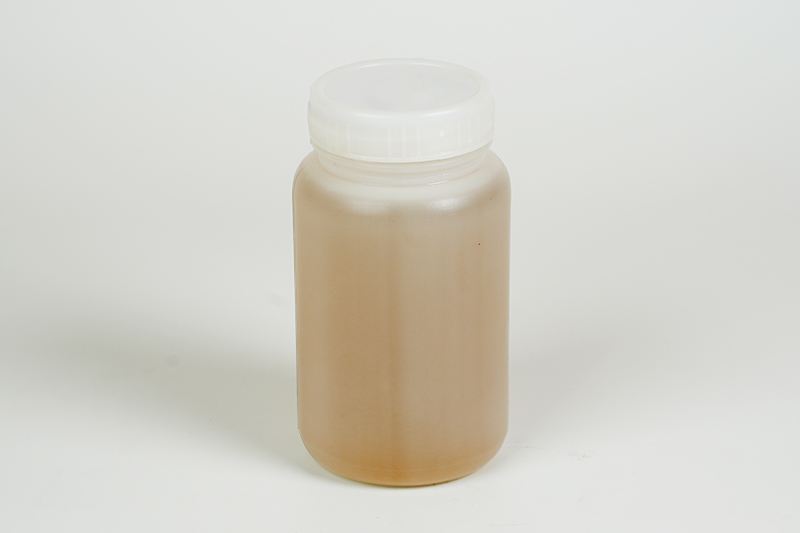
Turkey Red Oil Features:
1. Water Solubility:
Turkey Red Oil is water-soluble, which makes it an excellent emulsifier and dispersing agent in aqueous systems. Its ability to form stable emulsions with water facilitates its use in industries requiring water-based formulations.
2. Emulsifying Properties:
The oil exhibits strong emulsifying properties, enabling it to create stable emulsions of oils and other hydrophobic substances in water. This property is particularly beneficial in applications such as textile dyeing and formulation of cosmetic and personal care products.
3. Wetting Agent:
Turkey Red Oil functions as a wetting agent, promoting the even spreading of liquids on surfaces. This characteristic is advantageous in processes where uniform wetting is essential, such as in the manufacturing of detergents and agricultural formulations.
4. surfactant Functionality:
As a sulfated castor oil derivative, it acts as a surfactant, reducing the surface tension of liquids and enhancing their spreading and wetting capabilities. This surfactant functionality makes it valuable in the formulation of cleaning products and industrial applications.
5. Textile Industry Applications:
Widely used in the textile industry, Turkey Red Oil aids in the emulsification and dispersion of dyes, enhancing the dyeing process and improving color uniformity. Its compatibility with various dyestuffs makes it a preferred choice in textile applications.
6. Versatility in Formulations:
Its versatility extends to diverse industrial formulations, including soaps, shampoos, and other personal care products, where its emulsifying and wetting properties are harnessed.
7. Natural Origin:
Derived from castor oil, Turkey Red Oil maintains a natural origin, appealing to industries and consumers seeking eco-friendly and sustainable alternatives.
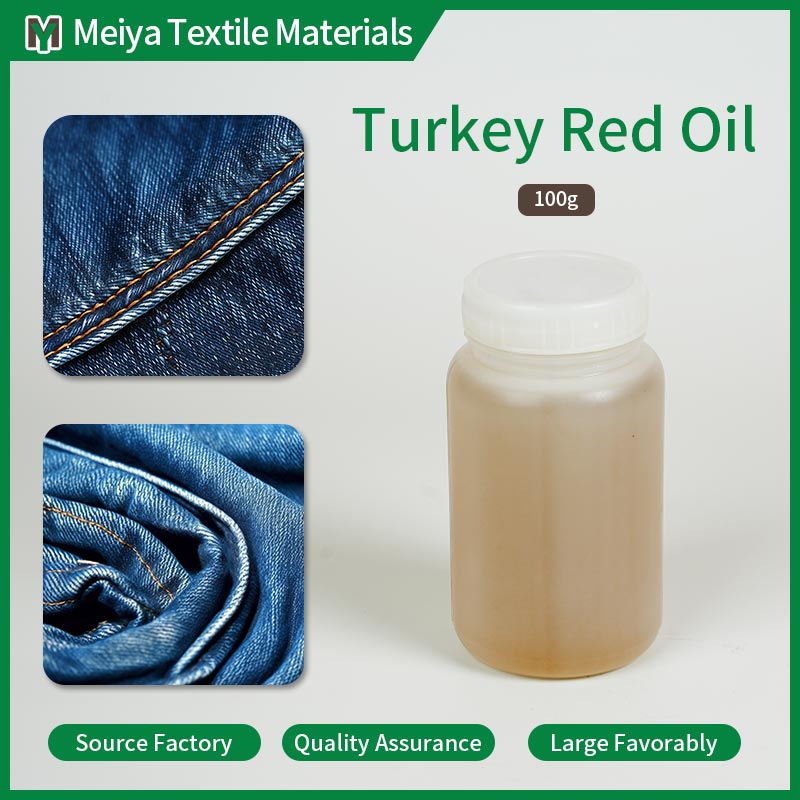
Turkey Red Oil Application:
1. Textile Industry:
Dyeing Processes: Turkey Red Oil serves as an effective emulsifier for textile dyes, facilitating uniform dispersion and absorption onto fabrics.
Wetting Agent: Its wetting properties assist in the penetration of fabrics, improving dye penetration and enhancing color quality.
2. Cosmetics and Personal Care Products:
Emulsification: Used in the formulation of creams, lotions, and shampoos to emulsify oils and create stable, water-dispersible products.
Wetting and Spreading: Acts as a wetting agent in cosmetics, aiding in the even spreading of products on the skin or hair.
3. Cleaning and Detergent Industry:
Surfactant Functionality: Turkey Red Oil's surfactant properties contribute to the formulation of detergents, enhancing their ability to disperse and clean oils and greases.
Wetting Agent: Improves the wetting of surfaces, ensuring better cleaning efficacy.
4. Agricultural Formulations:
Adjuvant in Pesticides: Used as an adjuvant to enhance the effectiveness of agricultural pesticides by improving their dispersion and wetting on plant surfaces.
5. Oil Well Drilling Fluids:
Emulsification: Turkey Red Oil is employed in drilling fluids to emulsify oil-based additives, aiding in the stability and performance of the drilling fluid.
6. Paper Industry:
Wetting Agent: Applied as a wetting agent in paper manufacturing to ensure uniform wetting of fibers, promoting better paper quality.
7. Adhesive Formulations:
Emulsification: Used in the production of water-based adhesives, contributing to the stable emulsion of adhesive components.
8. Firefighting Foam:
Emulsifying Agent: Turkey Red Oil is utilized in the formulation of firefighting foams, where its emulsifying properties help create stable foam for effective fire suppression.
9. Metalworking Fluids:
Emulsification: Incorporated into metalworking fluids to emulsify oils, providing lubrication and cooling during machining processes.
10. Biomedical Applications:
Carrier in Pharmaceuticals: Serves as a carrier for certain pharmaceutical formulations due to its solubility and emulsifying capabilities.
Turkey Red Oil FAQs:
Is Turkey Red Oil compatible with various types of textile dyes?
Yes, it is known for its compatibility with a wide range of textile dyes, making it a versatile choice in the textile industry.
Does Turkey Red Oil have any additional benefits in textile applications?
It may impart softening properties to fabrics, contributing to the feel and texture of the final textile products.
Can Turkey Red Oil be used in combination with other textile auxiliaries?
Yes, it is often used in combination with other textile auxiliaries to achieve specific performance characteristics, such as improved dye fixation and fabric softness.
How does Turkey Red Oil address environmental concerns in the textile industry?
Turkey Red Oil is known for its relatively high biodegradability, aligning with environmentally conscious practices in the textile sector.
Are there specific guidelines for the dosage of Turkey Red Oil in textile formulations?
The optimal dosage depends on the specific formulation and process requirements, and it is advisable to follow industry guidelines for effective and efficient use.

